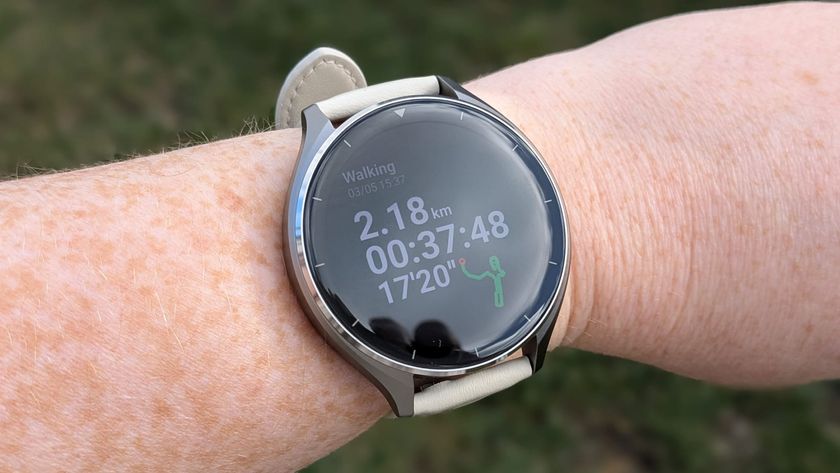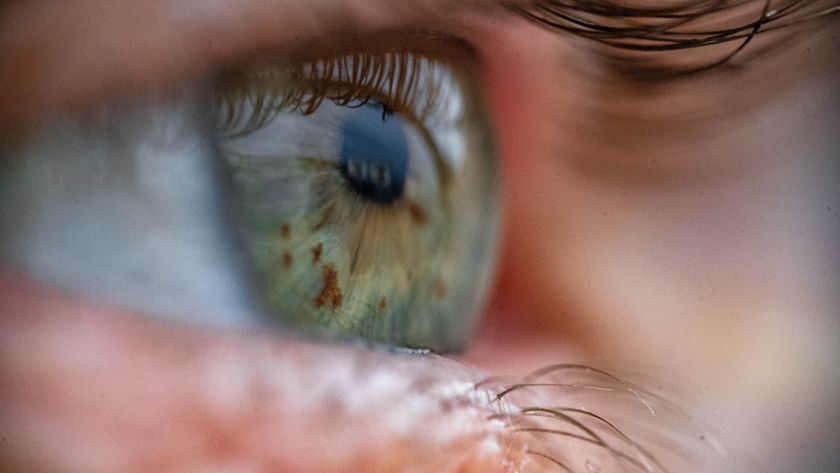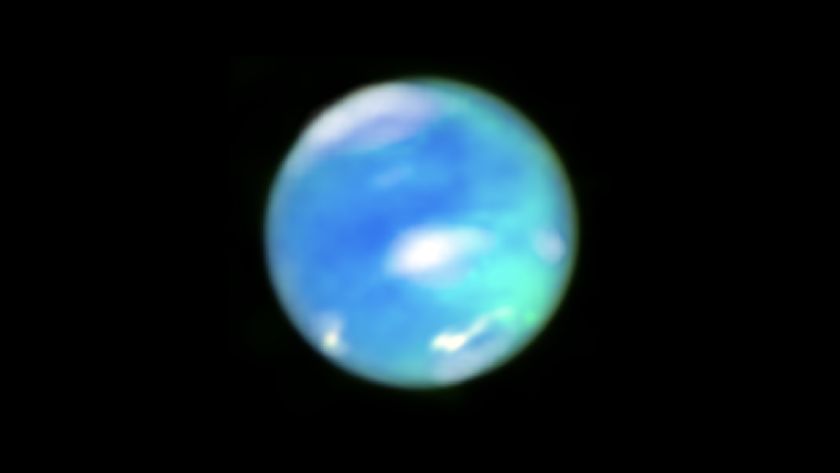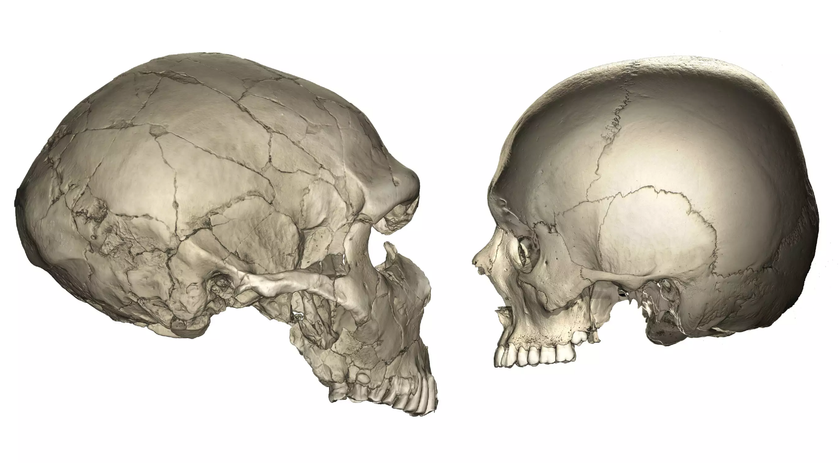In Images: Tale of an Injured Whale Shark
Fermin the Whale Shark
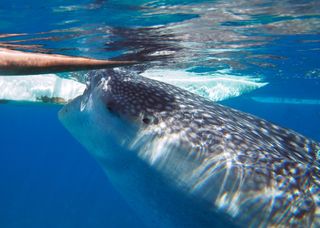
The male whale shark "Fermin" feeds at a non-motorized boat in the Tan-awan feeding area in Oslob, the Philippines before his injury. Like other sharks who feed there regularly, Fermin sports calluses around his mouth from repeatedly bumping the boat.
Fermin Pre-Injury
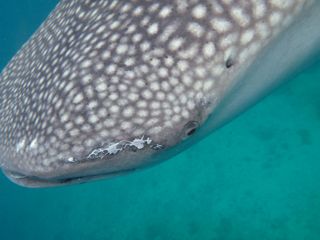
A view from above of the whale shark Fermin shows the calluses caused by bumping against boats from which fishermen drop shrimp meals.
Propeller Scar
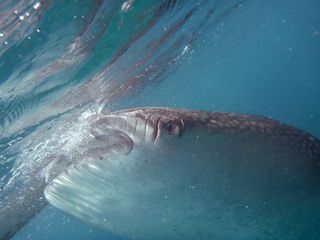
Between July 17 and July 19, Fermin encountered a motorized boat and came away with deep propeller cuts to his face. The placement of the cuts suggests he approached the boat in search of food.
11 Gashes
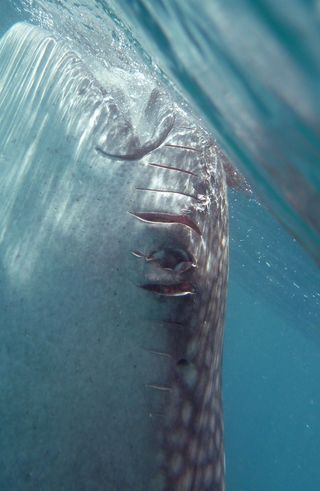
An encounter with a motorized boat left the male whale shark Fermin with 11 gashes across his face.
Fermin's Scars
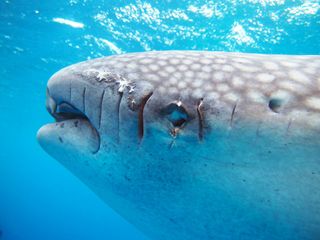
The whale shark "Fermin" sports slashes from a run-in with a boat propeller. One cut runs across his left eye.
Fermin's Face
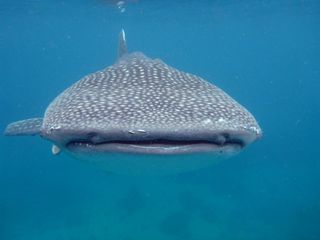
Fermin, before being injured by a boat propeller. The whale shark is a daily visitor to the Tan-awan whale shark feeding area, an ecotourism effort in Oslob in the Philippines.
Fermin's Full Length
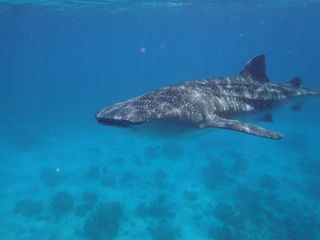
Fermin is young and small for a whale shark, about 13 feet (4 meters) in length. Marine biologists are not yet sure whether his left eye will recover from his injury.
Sign up for the Live Science daily newsletter now
Get the world’s most fascinating discoveries delivered straight to your inbox.

Stephanie Pappas is a contributing writer for Live Science, covering topics ranging from geoscience to archaeology to the human brain and behavior. She was previously a senior writer for Live Science but is now a freelancer based in Denver, Colorado, and regularly contributes to Scientific American and The Monitor, the monthly magazine of the American Psychological Association. Stephanie received a bachelor's degree in psychology from the University of South Carolina and a graduate certificate in science communication from the University of California, Santa Cruz.


